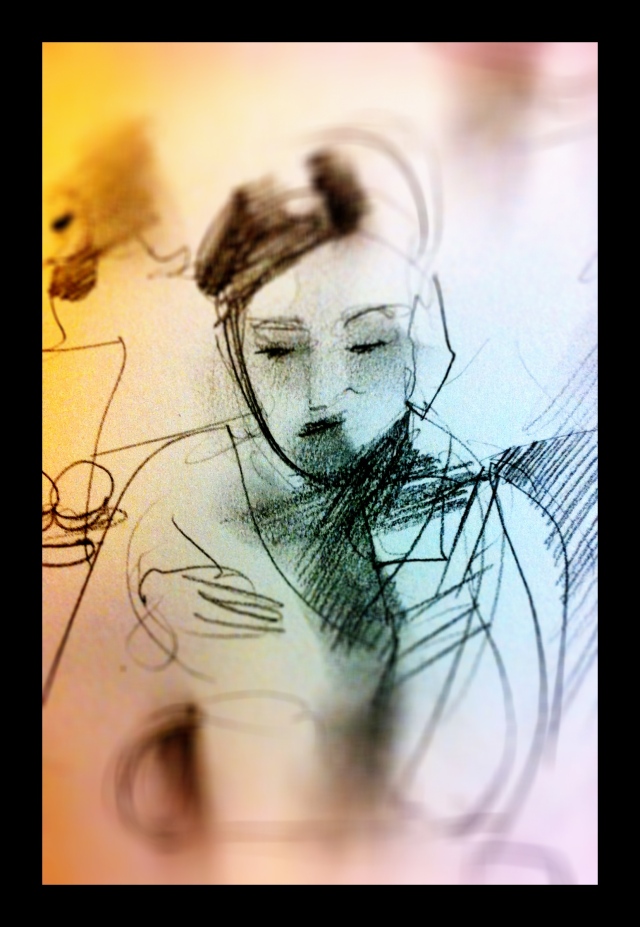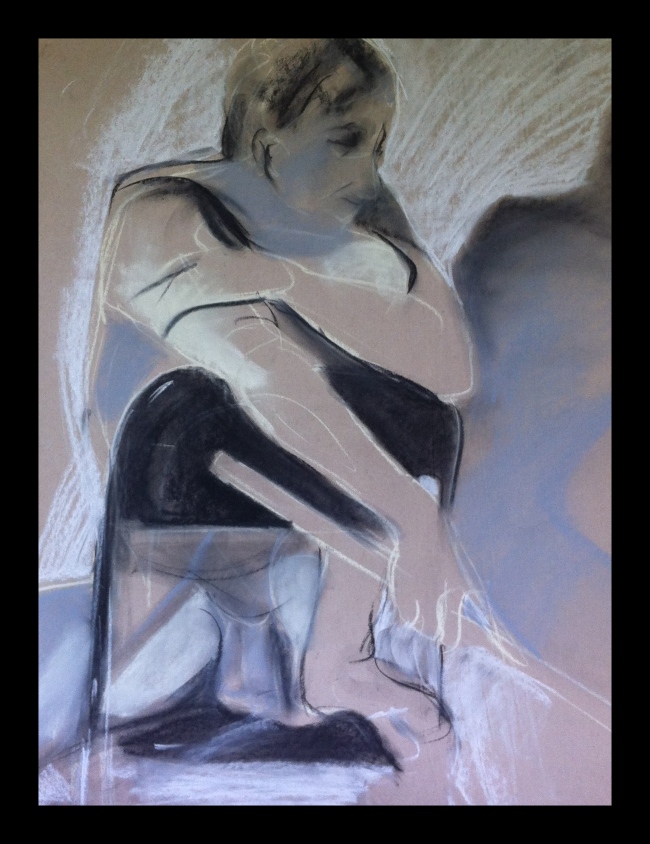(Originally published in Vancouver Island Almost Free)
I fell in love with Steve the Australian on St Valentine’s Day. It happened by the light of a potato oven, deep under the Edinburgh castle mound. That I could love a mere Australian in a country brimming with Scottish men speaks to the power of Steve’s charm. It was considerable.
The Scots enjoy a baked potato. They even have a chain restaurant devoted to the lowly root vegetable, called Spud-U-Like. It’s basically a fast food counter serving nothing but baked potatoes topped with substances that Scottish people consider good toppings for potatoes. You can’t have sour cream, but do you want a potato with tuna and sweetcorn? Brown beans straight out of the tin? Chicken tikka masala made by Morag from John O’Groats? Spud-U-Like can hook you up.
In the last month of the twentieth century, I found myself employed at a place called Common Grounds. Though it was an independent café, Common Grounds, too, furnished forth baked tatties, alongside cappuccinos and hot chocolate. The potatoes had their own room in the basement. Lore had it that what was now our potato room had been part of a complex of dungeons connected to the castle.
I was the only Canadian on staff. There was gorgeous Steve from Sydney, Erin from New Zealand, Joanna from Fife, Jamie from Dunfermline, Phani from Athens, and me. I had met Phani, a nursing student, at the University of Edinburgh, where we bonded over our shared culture shock, being incredibly cold all the time, and aversion to the University Library. Her library anxiety was instinctive; mine had been earned.
One November night, as I was wandering the stacks and quietly weeping, I missed the announcement that the library was about to close. A few minutes later, all the lights went off with a heart-stopping CLACK. I realized in that moment I had not seen any other humans for a long time. I began to grope my way out in the darkness, bleating for help. I was met at last in the stairwell by a security guard.
“Wha’re yu steel duinn en heirr, luv!” he guffawed. Scots will laugh at you, any chance they get.
“I – uh – I don’t know. “
I was new to the dialect and never entirely sure what anyone in the city was saying to me. “I don’t know” had become my default answer to anything that seemed like a question. Though I wasn’t fond of his attitude, I naturally followed the guard out of the building out like he was Robert the Bruce himself.
A month after the library incident, I withdrew from studies at the University of Edinburgh. Between that experience and the fact that the George Square cafeteria had no windows and served ketchup from a huge open bowl under the name ‘red sauce’, by December I just couldn’t take it anymore. At Student Services, Morvyth told me that, as a postgraduate student, I was required to announce my withdrawal in person to the Head of the English Language Department, Charles Jones. I duly climbed the stairs to his office.
Professor Jones told me of his disappointment in me. He said a Scottish winter is indeed hard to get used to, and I should stick it out until spring. He reminded me of the privilege I was throwing away, and wanted to know what on airth I would now do with my life if it wasn’t studying syntax.
“Lots of things. I might take piano.” I said crazy things like that, in those days.
He looked out of the grey window and murmured, “I used to play the piano. I can’t remember why I stopped.” He kept looking out across the Meadows, and beyond that, to the Links, whose curious lumpy terrain is ascribed to the shallow graves of plague victims. He seemed to have forgotten I was in the room. I slipped out the door and closed it softly.
Phani told me they needed someone where she worked, at Common Grounds, and I applied for the job. I liked the idea of that steamy, glowing little place that clung to the majestic bulk of the castle mound, with its views of Princes Street Gardens and Calton Hill. And I needed cash, fast.
Common Grounds was owned by Gladys, or as I called her, Marie Antoinette. Gladys was a rich Texan married to an even richer Scot, and together they ruled galaxies and produced a dense pink item named Harrison. Harrison had his own Shetland pony and his own baby grand piano. Gladys brought in pictures to show us: Harrison on the pony. Harrison with the baby grand. Harrison asleep on a pile of money. She paid us three pounds an hour, in a country where a cup of coffee cost two pounds. We retaliated by not telling her, once, when she came out of the toilet with her skirt tucked into the back of her tights, and by eating as many of her crisps and white chocolate buttons as we could stand.
Despite my fall from academic grace and my difficult employer, I felt happy at Common Grounds. The camaraderie of my fellow workers, adrift in the world like me, soothed my soul. Hogmanay came, with its riotous street party; Common Grounds stayed open late and nearly exploded from overcapacity and extra steam. February arrived, and on the fourteenth I took Steve by the hand and led him down to the potato room.
Gentle reader, I misled you. It was not Steve I loved by the glow of the potato oven, deep beneath Edinburgh Castle. I always thought it would be a good spot for romance, so strange and secret, and Steve the Australian served the fantasy well enough. Actually I just needed him to help me carry potatoes upstairs. A big group of Germans had just come in.
No, despite everything, I fell in love with Scotland itself. Grey, cold, hostile, sarcastic, baffling, deep fried, deeply intelligent Scotland. Convention has it that countries are female, but to me Scotland will always be all man. Scotland it was who took me in his strong arms, pressed me against a clammy underground wall, and kissed me hard.
In March, he sent me daffodils. I decided to stay.


